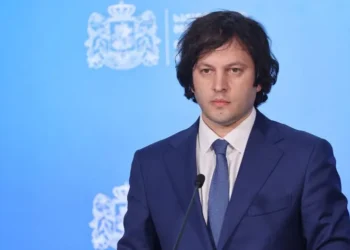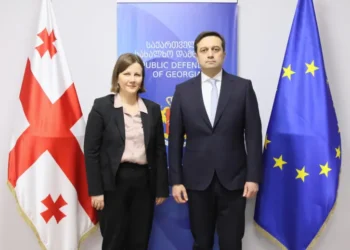Read Part 1.
Read Part 2.
Read Part 3.
This is one of the growing “geographic-geopolitical centers” of recent times, the peculiarity of which was especially clearly manifested against the background of the Russian-Ukrainian war. At present, it is difficult to talk about the future of this seemingly new pole, although its formation and influence on global processes is already felt.
As represented by a number of countries in South America, Asia and the East, the characteristic feature of the Global South is the refusal to take sides in military conflicts. These “countries remaining” outside the countries that have regrouped in one camp or another of the world openly flaunt a kind of Machiavellian line in foreign policy, where “the end justifies the means”.
However, objectivity requires noting that in some cases, in terms of sympathy for the conflicting parties or results, this line is not geopolitically “unaffected”. For example, the refusal to join Western sanctions against Russia (in order to pursue its national interests) reduces the effectiveness of these sanctions and offers a kind of “lifeline” for the Russian economy. It would take us too far to characterize specific examples, but for the purposes of a general classification, this group of “others” is probably close to the Non-Aligned Movement that developed in the 1970s. Let us repeat: it is close, but it does not fully replicate all its aspects; moreover, due to the geopolitical reality that is radically different from that time, it is unable to replicate it.
The political handwriting of the Global South is still largely transactional, i.e. it is oriented to obtaining a specific benefit in each specific situation. However, in this “falling out” of the South from the unified context, one should look not only for its intention, but also for the lack of a proper attitude of the big players to the “others” (at least!) in the post-Cold War period. For example, during the abovementioned period, various European problems were repeatedly turned into problems of the world, although one or another problem of the rest of the world rarely became worthy of Europe’s due attention.
Let us once again emphasize the importance of the Global South for world processes. However, we should also note that in terms of consistent, systemic and long-term projection of global influence, it is still too early to speak confidently about the establishment of the Global South as a monolithic pole.
We: The Georgian Side
In the recent past, we have discussed many times the pursuit of the Georgian geopolitical line in the current realities. This time we will limit ourselves to stating briefly that this line should be as nationally egocentric as possible under the conditions of the priorities defined by the foreign policy framework format. In other words, the driving force behind this egocentrism is: (1) The primacy of interests emanating from the critically important formula for the Georgian state – “more national security, more economic welfare” – over the interests of others – wherever possible; (2) The alignment of security and economic interests derived from the same formula with the interests of others – as much as possible, wherever possible.
Maneuvering and balancing is not alien to Georgia. Historically, our country has tried, with varying success, to do so in order to achieve goals appropriate to the tasks of this or that stage. The direct and correct pursuit of this line will remain a priority in a world in which the order of any configuration for the foreseeable future will depend on: (a) the global balance of power; (b) the ideological content of systems determining the global balance of power; and (c) the factor of geographic location.
Against this background, taking into account the trends described in the article, we would like to share with the audience some thoughts in the form of a brief conclusion. We believe that implementing each of these as a practical method of policymaking will be useful in achieving practical rather than theoretical results. To begin with, (1) in the context of the current first world economic war, Georgia faced an equally challenging and historically unique opportunity to significantly increase its attractiveness as an economic hub and, together with the region’s “economic like-minded” countries, to advance the region in the emerging industrial and transport structure of the new world. Related to this same view is a very visible trend, according to which global companies are becoming ideologically relatively “neutral” and looking for friendlier, relatively safe geographies to relocate. The uniqueness of this historical moment for the Georgian side lies in the fact that it is given the opportunity (through joint public-private efforts) to offer the best choice of so-called “friendshoring” (“placement in a friendly environment”) to advanced business interests. In this context, Anaklia, the Black Sea cable or sub-regional projects within the middle corridor will flesh out the above proposal; (2) To realize the already mentioned Georgian ego-standard of “more national security, more economic prosperity”, the right synergy of Georgia’s soft power, preventive secret service and proactive diplomacy is needed. We have more than once mentioned the national significance of each of them as well. This time we will say only a few words about the unprecedentedly growing role of Georgian diplomacy: it must achieve such a standard so that it can politically neutralize actions against the interests of the Georgian state at an early stage, in order to save the remaining resources of the state (military and economic) as much as possible; (3) It is necessary to introduce into both Georgian domestic and foreign political practice (although this division is very tentative today) the prioritization of issues: time and resources should be allocated for primary or secondary tasks. In order to avoid unpredictable and risky results in certain situations, the creation of policies aimed at a substantive result can be based on a step-by-step approach.
It has been very accurately said that the political leaders of the modern era should have two main and basic qualities: calm acceptance of events when they cannot physically change them for the better or influence them, and courage when they are able to take advantageous steps. Based on Georgian realities, let us add one more to these two qualities: a politician also needs the wisdom to know when to act calmly and when to act courageously.
By Victor Kipiani, Chairperson of Geocase














